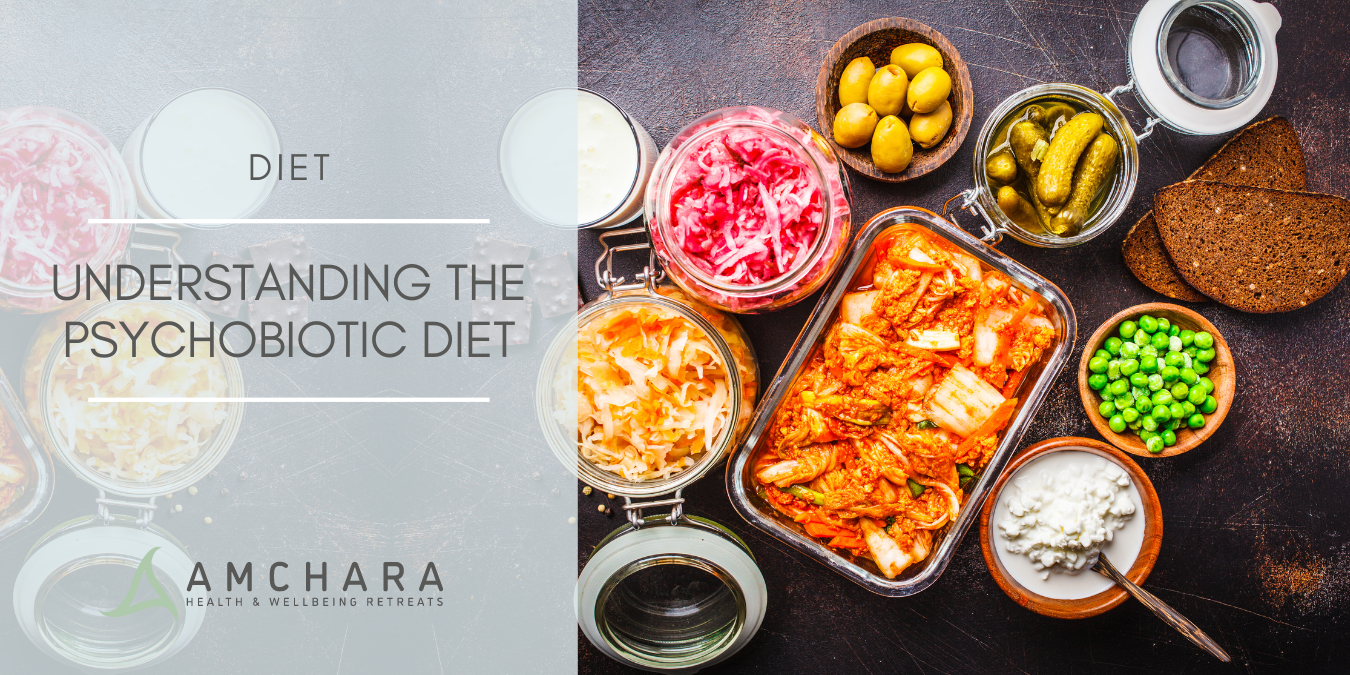The New Year is often seen as a symbolic time to start afresh and can be a great opportunity to introduce new, healthy habits.
If you’ve never tried fasting before, this is one New Year resolution which can reap rewards for your health. Fasting is surprisingly easy, costs nothing to do and is simple to fit into your daily life.
In this article we’ll provide you with inspiration to make fasting part of your New Year by looking at some of its many benefits, along with sharing practical tips to incorporate fasting into your routine.
What do we mean by fasting?
Fasting is nothing new. Fasting in some form plays a part in many cultures.
Strictly speaking, fasting is abstaining from food for a specific period of time, known as water fasting.
The time periods in which food is avoided can vary from a day or a few days to certain hours in the day.
Fasting for a set time each day, in other words a period of fasting followed by a period of eating, is called intermittent fasting.
Fasting is becoming increasingly popular, and a type of intermittent fasting known as time restricted eating (TRE) has become widespread. This method is when you increase the number of hours you are not eating from the usual 7-8 hours overnight to as many as 16 hours, simply by making the evening meal earlier and eating breakfast later in the day.
An extensive body of research demonstrates a myriad of health benefits associated with fasting.
Fasting is completely natural, remember that we all fast for a certain number of hours when we’re asleep. In nature, periods of food abundance are frequently followed by food scarcity, and this is what your genes are used to dealing with. It appears that when food is not being eaten, your body has the opportunity to undertake certain biochemical processes, many of which are devoted to the repair of your tissues.
The science of fasting
Let’s have a look at what happens on a cellular level when you eat, and when you haven’t eaten for a while.
When you eat food your body releases insulin, enabling the glucose in the meal to be used for energy. If it’s not needed immediately, the energy will be stored for use in the future, either in the liver and muscles or laid down as fat. This is known as the fed state.
When insulin is high, the body doesn’t use this stored energy and is reluctant to burn off fat.
After several hours without food, your body reverts to what is known as a fasting state. A different hormone called glycogen is released and insulin drops, enabling the body to use the energy stored in the liver and the muscles.
As more time goes by and these energy stores run out, your body switches to fat burning as fuel; this will typically only start around 12 hours after eating, provided no further food is consumed. However, this time period will vary depending on the amount of energy stored in the liver and muscles, and the energy expended since the last meal was eaten.
This means you can only burn off fat in the fasted state, and you will tend to lay down fuel as fat in the fed state.
Benefits of fasting
- Weight loss
Given the above it’s not surprising regular fasting has been found to reduce body weight. This is not simply down to a reduction in the quantity of calories eaten, but due to the hormonal changes we have looked at.
Fasting seems to be especially beneficial at burning off fat deposited around the abdominal organs. This visceral fat is connected with increased inflammation as well as the development of coronary disease and Type 2 diabetes.
Fasting also appears to preserve muscle, whereas traditional diets simply restricting calorie intake tend to lead to more muscle loss (1).
However, the benefits of fasting go beyond simply losing weight.
- Metabolic syndrome
This is a cluster of conditions occurring together and they increase the risk of heart disease, Type 2 diabetes and stroke. They comprise high blood pressure, obesity (especially deposition of fat around the waist), insulin resistance leading to high blood sugar levels, and disordered blood fat and cholesterol levels.
It’s becoming clear metabolic syndrome is a lifestyle disease, and one of the reasons it’s so widespread may be because people are eating too frequently.
Fasting has been shown to improve the way the body controls the level of sugar in the blood. It’s thought to do this by improving the sensitivity of cells to insulin. As we’ve seen, this is the hormone allowing sugar to be transported out of the blood and into the cells, to be used as fuel.
If you suffer from sugar cravings or have a tendency for your energy to slump, maybe in mid-afternoon, it’s likely you are experiencing problems with blood sugar control. Even though it seems to make logical sense to provide your body with a steady stream of energy by eating regularly to iron out blood sugar fluctuations, it’s likely abstaining from food can correct the root cause of the problem, insulin resistance (2).
Insulin resistance is a kind of deafness of the body’s cells to the message delivered to them by insulin.
You may have noticed that if you eat foods which release their sugar rapidly into the bloodstream, you’re more likely to experience sugar cravings. This makes sense when you understand that when sugar streams into the bloodstream after a sweet snack, a rush of insulin is produced to bring blood sugar down again. Unfortunately frequent releases of insulin like this seem to lead to cells becoming unresponsive to its message.
It’s common to experience greater fluctuations in blood sugar levels after holidays or Christmas when you may have eaten more sugary foods than usual.
With its positive effects on blood sugar control, it’s not surprising fasting has been connected with a reduced likelihood of developing Type 2 diabetes (3).
Regular fasting has also been linked to healthy blood pressure, reduced incidence of coronary artery disease and has been seen to beneficially alter cholesterol levels. Fasting may therefore reduce the likelihood of developing metabolic syndrome.
- Fasting and inflammation
One of most interesting responses by the body to abstinence from food is inflammation seems to decrease.
We usually think of inflammation in terms of a response to infection or trauma, like a swollen and painful sprained ankle. In these circumstances inflammation is useful, as it mobilises the immune system to begin repairing damage.
However, in many cases inflammation is allowed to continue at a low level, becoming chronic and this can result in damage to your cells.
In fact, it’s now believed this type of inflammation is behind the development of chronic disease. While we need to look at lifestyle factors to understand why inflammation is so prevalent these days, it’s useful to know fasting can naturally reduce inflammation. Researchers have found certain messenger chemicals, which promote inflammation, appear to subside in fasting (4).
Research also shows fasting has an effect on the bacteria which reside in your gut, known as your microbiome. Certain types of these bacteria release anti-inflammatory molecules and so it’s likely fasting may encourage the beneficial strains of bacteria.
- Autophagy – spring cleaning
The body has developed a natural process, known as autophagy, to clear away its own cellular waste and debris. Special cells in the immune system effectively gobble up damaged cells and other garbage. The word literally means ‘self-eating’ and is a kind of maintenance programme for the body.
Inefficient autophagy is connected with degenerative diseases such as diabetes, heart disease, and Alzheimer’s disease.
Autophagy doesn’t only happen periodically, it’s occurring constantly all around your body, but an interesting aspect of this clearing up process is it seems to be inhibited by eating.
When you go without food, your body has the opportunity to undergo this ‘spring cleaning’ process. It follows that if you’re constantly snacking or eating late into the night, your body doesn’t have a chance to perform this essential function.
It’s thought effective autophagy plays a major role in controlling inflammation. If autophagy doesn’t occur efficiently, debris and pathogens can build up in cells. This is believed to be at the heart of ageing and can lead to the accumulation of damaged DNA. Interestingly, the explosion of interest in fasting partly came about because of studies carried out on rodents, which found they lived longer if they fasted.
How will you feel during a fast?
Some people find that when they first start fasting they feel fatigued, headachy or even lightheaded, which may be due to a drop in blood pressure. This seems to disappear with regular fasting as the body adjusts.
So for your first fast, it’s best to choose a time without any energetic commitments. Combine your fast with some me-time and self-care relaxation, such as gentle yoga, meditation, massage or a soak in a bath with lavender essential oils and Epsom salts.
Will you feel hungry?
Many people worry they will feel ravenously hungry when fasting. As a society we’ve become accustomed to food being available 24/7, and this means many people are frightened of feeling hungry. However, your body has been hard wired over the millennia to deal with periods of food shortages.
Although you may feel hungry at first, the body usually rapidly adjusts. In fact, the hormones which regulate appetite seem to be positively affected during a fast and many people report an absence of hunger while fasting.
How to fast
If you’ve never fasted before, it’s a good idea to avoid tea, coffee and caffeine-containing soft drinks for a few days before your planned fast. This will reduce the likelihood of a caffeine withdrawal headache. Remember to drink plenty of water while you are fasting.
You may like to try time-restricted eating before embarking on a longer water fast. If you have your dinner earlier than usual and your breakfast later, this has the advantage of much of your fast being when you are unaware of it, in other words while you are asleep. Many people practise this type of fasting a few days every week.
Takeaway
With so many science-based benefits to fasting, why not make one of your New Year resolutions to give fasting a try?
Amchara has two wonderful retreat locations where a blissful experience awaits you. At our retreats, we offer fasting or juice cleanses alongside nutritional consultations and therapeutic massages, as well as detox treatments such as colonics to help cleanse your body from the inside out.
If you would like support on your New Year fasting journey, an Amchara Personalised Health practitioner can help you incorporate fasting into your lifestyle.
We believe sharing knowledge and experience can support others in achieving optimal health.
Have you tried fasting?
We’d love to hear your thoughts and tips.
Read this next:






